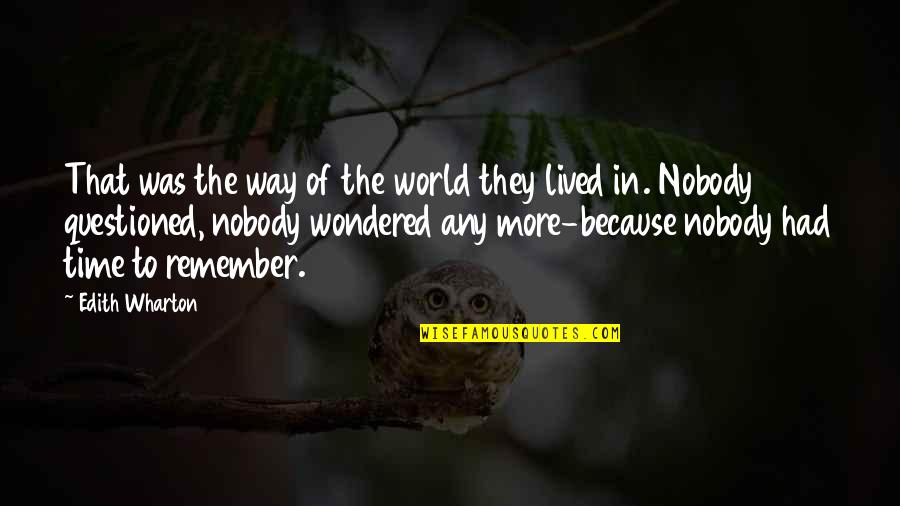Have you ever wondered why the world seems to be both chaotic and calm at the same time? Well, that’s what we call unusual normality. It’s like living in a world where everything feels off but somehow still feels… normal. In this article, we’ll break down the concept of unusual normality, its impact on our lives, and how we can navigate this strange new reality.
Unusual normality is not just some fancy buzzword; it’s a real phenomenon that affects all of us. Think about it: we’re living in a time when technology rules our lives, yet we still crave human connection. We’re more connected than ever before, but loneliness is on the rise. This paradoxical state of being is what makes unusual normality so fascinating—and sometimes frustrating.
But don’t worry, we’re here to help you make sense of it all. Whether you’re feeling overwhelmed by the chaos or simply curious about this concept, this article has got you covered. So buckle up, grab a coffee, and let’s dive into the world of unusual normality together.
Read also:What Does Tia Kemp Do For A Living Unveiling The Career Of A Rising Star
Table of Contents
- What Exactly is Unusual Normality?
- The Origins of Unusual Normality
- Key Characteristics of Unusual Normality
- How Does Unusual Normality Affect Us?
- Unusual Normality in the Workplace
- Unusual Normality in Everyday Life
- Coping with Unusual Normality
- The Psychological Impact of Unusual Normality
- Unusual Normality and Global Events
- The Future of Unusual Normality
What Exactly is Unusual Normality?
Let’s start with the basics. Unusual normality refers to the state of living in a world where the unexpected becomes the norm. It’s like when you think you’ve got life figured out, and then something completely unexpected happens. But here’s the twist: instead of being shocked every time, we start to expect the unexpected. Sounds crazy, right? But that’s the beauty—or maybe the madness—of unusual normality.
In simple terms, unusual normality is the new normal. It’s the idea that life is no longer predictable, and that’s okay. In fact, it’s becoming the norm. This concept challenges our traditional understanding of what it means to live in a stable, predictable world. Instead, we’re learning to adapt to a world where change is constant, and uncertainty is the only certainty.
Defining Unusual Normality
To break it down even further, unusual normality can be seen as a blend of two opposing forces: the familiar and the unfamiliar. On one hand, we have the comfort of routines, traditions, and social norms. On the other hand, we’re constantly bombarded with new ideas, technologies, and global events that shake up our world. This duality creates a unique tension that defines the essence of unusual normality.
The Origins of Unusual Normality
So, where did this whole unusual normality thing come from? Well, it’s not like someone woke up one day and said, “Hey, let’s make life unpredictable!” No, it’s more like a gradual shift that’s been happening over the years. Think about it: the rise of technology, globalization, and social media have all played a role in shaping this new reality.
For example, social media has completely transformed the way we communicate. We can now connect with people from all over the world in an instant. But at the same time, it’s also created a culture of instant gratification and FOMO (fear of missing out). This constant stream of information has made it harder for us to stay grounded in the present moment.
Key Influencers of Unusual Normality
- Technological advancements: From smartphones to AI, technology has changed the way we live, work, and interact.
- Globalization: The world is more interconnected than ever before, leading to a blending of cultures and ideas.
- Social media: Platforms like Instagram, Twitter, and TikTok have created a new kind of social currency, where likes and followers define success.
Key Characteristics of Unusual Normality
Now that we’ve covered the basics, let’s talk about what makes unusual normality so unique. Here are some key characteristics that define this phenomenon:
Read also:Nice Clan Tags The Ultimate Guide To Stand Out In Gaming Communities
1. Constant Change
In the world of unusual normality, change is the only constant. Whether it’s a new app, a global event, or a shift in social norms, we’re always adapting to something new. This constant state of flux can be both exciting and exhausting, depending on how you look at it.
2. Blurred Boundaries
Unusual normality also blurs the lines between different aspects of life. For example, the line between work and personal life has become increasingly blurred, thanks to remote work and 24/7 connectivity. Similarly, the distinction between online and offline identities is becoming less clear as we spend more time in digital spaces.
3. Uncertainty
Let’s face it: life in the age of unusual normality is full of uncertainty. From economic instability to climate change, there are so many factors that can impact our lives in unpredictable ways. But instead of letting this uncertainty paralyze us, we can learn to embrace it and find strength in adaptability.
How Does Unusual Normality Affect Us?
Unusual normality isn’t just a theoretical concept; it has real-world implications that affect us all. Whether you’re a student, a working professional, or a stay-at-home parent, this phenomenon is shaping the way you live your life. Here are some ways unusual normality impacts us on a daily basis:
1. Mental Health
Living in a world of constant change and uncertainty can take a toll on our mental health. Many people struggle with anxiety, stress, and burnout as they try to keep up with the demands of modern life. But the good news is that awareness of mental health issues is growing, and more people are seeking help when they need it.
2. Relationships
Unusual normality also affects our relationships, both personal and professional. With so much communication happening online, it’s easy to lose the human connection that’s so important for building strong relationships. That’s why it’s crucial to make time for face-to-face interactions and meaningful conversations.
3. Work-Life Balance
As we mentioned earlier, the line between work and personal life is becoming increasingly blurred. This can lead to burnout if we don’t set boundaries and prioritize self-care. Finding a healthy work-life balance is essential for maintaining our physical and mental well-being in the age of unusual normality.
Unusual Normality in the Workplace
Let’s talk about how unusual normality is reshaping the workplace. From remote work to flexible schedules, the traditional 9-to-5 model is becoming a thing of the past. Employers are realizing that one-size-fits-all solutions don’t work in a world where everyone’s needs are different.
Here are some ways unusual normality is impacting the workplace:
- Remote work: More companies are offering remote work options, allowing employees to work from anywhere in the world.
- Flexible schedules: With the rise of remote work, many companies are adopting flexible schedules to accommodate different time zones and personal preferences.
- Emphasis on mental health: Employers are recognizing the importance of mental health and offering resources like counseling services and wellness programs.
Unusual Normality in Everyday Life
But it’s not just the workplace that’s changing; unusual normality is affecting every aspect of our lives. From the way we shop to the way we socialize, everything is evolving to meet the demands of this new reality.
1. Shopping Habits
With the rise of e-commerce, shopping has become more convenient than ever. But it’s also changed the way we interact with businesses and each other. Instead of visiting a store, we can now browse products from the comfort of our own homes. This shift has led to a more impersonal shopping experience, but it’s also given us access to a wider range of products and services.
2. Socializing
Social media has completely transformed the way we socialize. While it’s made it easier to stay connected with friends and family, it’s also created a culture of comparison and validation. Many people feel pressure to present a perfect image of their lives online, which can lead to feelings of inadequacy and low self-esteem.
Coping with Unusual Normality
So, how do we cope with the challenges of unusual normality? Here are some strategies to help you navigate this strange new world:
1. Practice Mindfulness
Mindfulness is all about being present in the moment and accepting things as they are. By practicing mindfulness, you can reduce stress and improve your overall well-being. Whether it’s through meditation, yoga, or simply taking a few deep breaths, mindfulness can help you stay grounded in a world of constant change.
2. Set Boundaries
In a world where work and personal life are constantly overlapping, it’s important to set boundaries. This might mean setting specific work hours, turning off notifications after a certain time, or scheduling regular breaks throughout the day. By setting boundaries, you can protect your mental health and maintain a healthy work-life balance.
3. Stay Connected
Even in a world where so much communication happens online, it’s important to stay connected with the people who matter most. Make time for face-to-face interactions, whether it’s meeting up with friends, having dinner with family, or simply taking a walk with your partner. These moments of connection can help you feel more grounded and supported in a world of uncertainty.
The Psychological Impact of Unusual Normality
Unusual normality can have a significant impact on our mental health and well-being. As we navigate this new reality, it’s important to be aware of the psychological effects it can have. Here are some common challenges people face in the age of unusual normality:
1. Anxiety
Living in a world of constant change and uncertainty can lead to feelings of anxiety. Many people find themselves worrying about the future, whether it’s their job security, their health, or the state of the world. While some level of anxiety is normal, it’s important to seek help if it starts to interfere with your daily life.
2. Burnout
With the demands of modern life, it’s easy to feel overwhelmed and burned out. Whether it’s work-related stress or the pressure to keep up with social media trends, burnout is a real issue that affects many people. To prevent burnout, it’s important to prioritize self-care and take breaks when needed.
3. FOMO
FOMO, or fear of missing out, is a common side effect of living in the age of social media. With so much information at our fingertips, it’s easy to feel like we’re missing out on something if we’re not constantly connected. To combat FOMO, try focusing on the present moment and appreciating what you have rather than comparing yourself to others.
Unusual Normality and Global Events
Global events like pandemics, economic crises, and political unrest have a significant impact on unusual normality. These events can create a sense of instability and uncertainty that affects us all. But they can also bring people together in unexpected ways, fostering a sense of community and resilience.
1. Pandemics
The COVID-19 pandemic is a prime example of how global events can shape unusual normality. From lockdowns to vaccine rollouts, the pandemic has forced us to adapt to new ways of living and working. While it’s been a challenging time for many, it’s also led to innovations in technology and healthcare that will continue to shape our world for years to come.
2. Climate Change
Climate change is another global issue that’s contributing to unusual normality. As we face rising temperatures, extreme weather events, and environmental degradation, we’re being forced to rethink the way we live and consume. This shift towards sustainability is a key part of navigating the challenges of unusual normality.
The Future of Unusual Normality
So, what does the future hold for unusual normality? As we continue to


